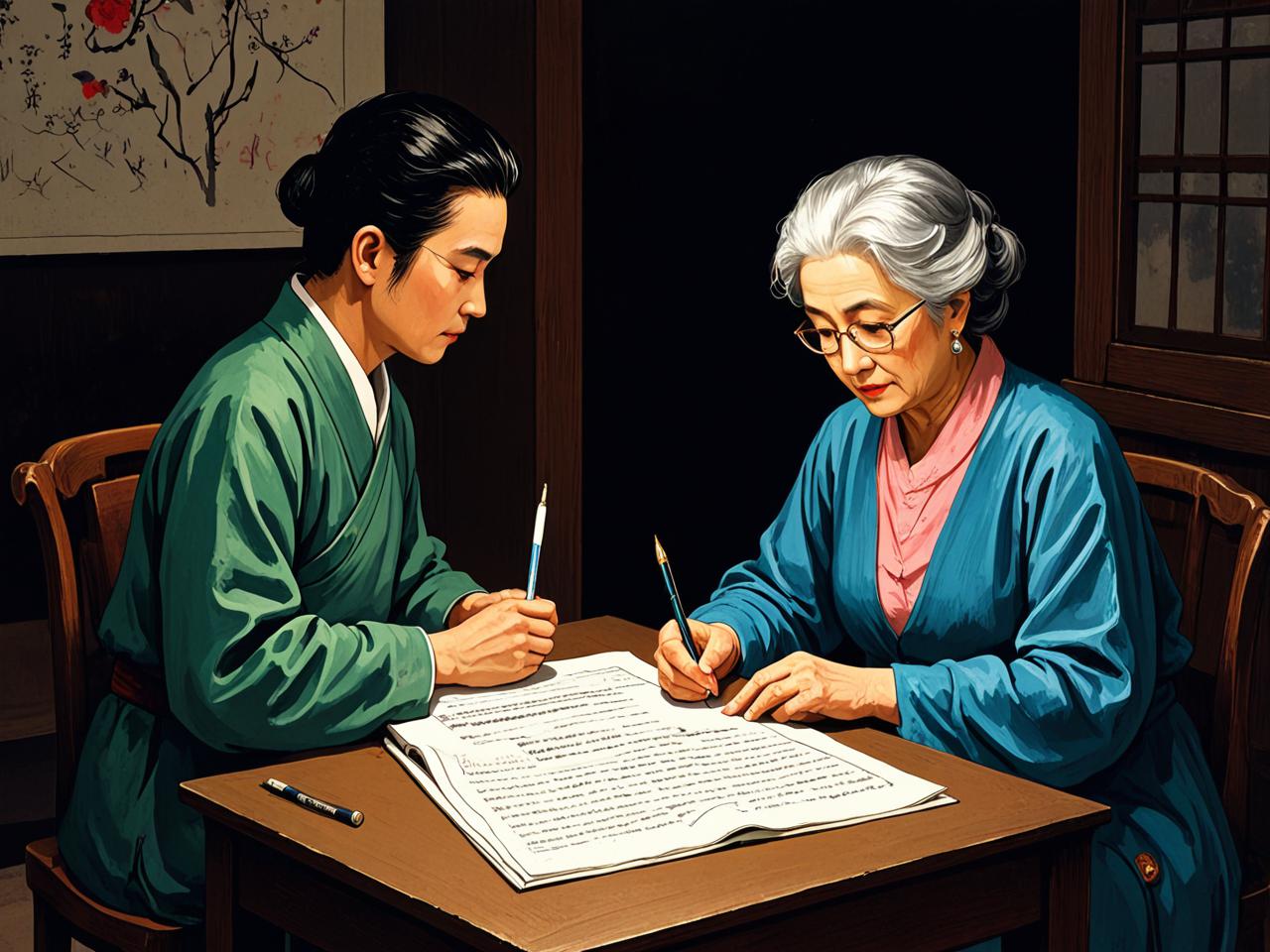本文目录导读:
梦境是人类心理活动的神秘映射,尤其是那些反复出现或令人不安的梦,往往能揭示我们潜意识中的焦虑、渴望或未解决的冲突,对于50岁到60岁的中年人来说,梦见考试是一种常见而有趣的梦境,这个年龄段的人通常已经远离了学生时代,但梦中却常常重回考场,面对试卷、时间压力和评分的焦虑,这样的梦究竟预示着什么?是从心理层面反映生活的压力,还是对未来的隐忧?本文将从心理学、文化解析和实际生活角度,深入探讨这一现象,并提供应对建议。
梦境的一般解析:考试梦的普遍意义
在解梦学中,考试梦通常象征着生活中的“测试”或“评估”,心理学家西格蒙德·弗洛伊德和卡尔·荣格都认为,梦境是潜意识与意识沟通的桥梁,考试梦往往出现在人生转折点或压力时期,比如职场竞争、人际关系挑战或重大决策前,它可能代表做梦者对自己能力的怀疑、对失败的恐惧,或对他人评价的焦虑,对于年轻人,考试梦可能直接关联学业或职业考试;但对于50岁到60岁的人群,这种梦则更多映射了中年期的独特心理状态。
50岁到60岁人群的特点:为什么考试梦常见?
50岁到60岁是人生的“中年后期”, often characterized by significant transitions. This age group may be facing retirement, health concerns, empty nest syndrome (children leaving home), or reassessment of life goals. They have accumulated life experience but might feel pressured by societal expectations or personal regrets. In this context, dreaming of exams can be a subconscious response to these pressures. For example, the dream might symbolize a "test" of their life choices—Did I succeed? Am I prepared for the future? It could also reflect fears of being judged by others, such as family or peers, especially in terms of career achievements or financial stability.
这个年龄段的人 often experience cognitive changes, such as memory decline or increased reflection on the past. The brain might use familiar symbols from youth (like exams) to process current stressors. Statistically, studies in dream psychology show that middle-aged adults report exam dreams more frequently than younger groups, highlighting its relevance to midlife crises or transitions.

具体预示:考试梦的可能含义
对于50岁到60岁的人,梦见考试可以有以下几种常见预示,结合梦境细节(如考试内容、情绪反应)可以更精准地解读:
-
对生活变化的焦虑:如果你梦到考试时间紧迫或无法完成试卷,这可能预示你对即将到来的变化感到不安,比如退休、健康问题或家庭责任,中年期 often brings major shifts, and the dream serves as a metaphor for "being tested" by life. For instance, dreaming of failing an exam might indicate fears of not meeting expectations in this new phase.
-
自我评估和 regret:考试梦 can symbolize a subconscious review of one's life. If you dream of being unprepared or cheating, it might reflect feelings of inadequacy or regrets about past decisions. This age group often engages in life review, and the dream could be urging you to reconcile with unresolved issues or set new goals.
-
外部压力和社会期望:梦到考官或评分可能代表你对他人评价的敏感,在50岁到60岁, societal pressures to "succeed" might intensify, such as providing for family or maintaining social status. The dream could be a warning to reduce external pressures and focus on self-acceptance.
-
积极预示:成长和 renewal:Not all exam dreams are negative. If you dream of passing an exam or feeling confident, it might symbolize readiness for new challenges, like starting a hobby, traveling, or embracing retirement. It could indicate a subconscious belief in your abilities to navigate this stage.
从 cultural perspectives, in Chinese dream interpretation, exams often symbolize luck or fortune. For example, dreaming of taking an exam might predict upcoming opportunities or challenges. However, this varies individually—it's essential to consider personal context.
实际案例与专家观点
To illustrate, consider a case study: A 55-year-old man dreamed repeatedly of failing a math exam despite being a retired engineer. Through therapy, he realized it linked to anxiety about financial planning post-retirement. The dream was his mind's way of processing fears of "not calculating correctly" in life. Experts like Dr. Deirdre Barrett, a Harvard psychologist, note that exam dreams in midlife often relate to "real-world tests," such as health screenings or family responsibilities, and can be a call to action—for instance, to seek support or plan ahead.
Moreover, neuroscientific research suggests that dreaming helps consolidate memories and problem-solve. For older adults, exam dreams might enhance cognitive adaptation by rehearsing scenarios, thus potentially improving real-life decision-making.
如何应对:从梦境中学习与成长
If you're in this age group and frequently dream of exams, here are practical steps to address the underlying issues:
- 自我反思:Keep a dream journal to note details like emotions and themes. This can help identify triggers, such as work stress or family conflicts. Reflect on what "test" you might be facing in waking life—is it related to health, relationships, or personal goals?
- 减少压力:Practice stress-management techniques like meditation, exercise, or talking to a therapist. Since exam dreams often stem from anxiety, addressing root causes can reduce their frequency.
- 设定现实目标:Use the dream as a motivator to reassess your life. Set small, achievable goals for this stage, such as learning new skills or volunteering, to build confidence and alleviate fears of "failure."
- 寻求支持:Share your dreams with friends or join support groups. Often, others in similar ages experience the same dreams, and discussing them can provide relief and insights.
In conclusion, dreaming of exams at 50 to 60 years old is not a mere coincidence but a profound psychological signal. It primarily预示着对中年转型的焦虑、自我质疑或对未来的期待,而不是超自然的预兆,通过理解这些 dreams, you can turn them into opportunities for growth, embracing this chapter of life with greater awareness and peace. Remember, dreams are not threats—they are mirrors of our inner world, guiding us toward balance and fulfillment.









